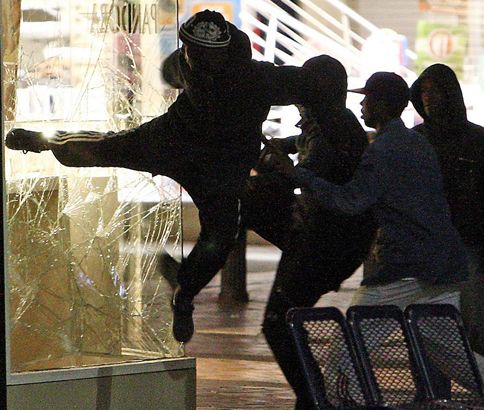

An influential committee of MPs have warned that serious civil disturbances should not result in a shutdown or blockade of social networking websites and applications.
The MP’s conclusions came in a report from the Home Affairs Committee, which looked at the policing lessons that could be learnt from the disturbances in August, when the UK was hit by a series of damaging riots across the country.
The committee is made up of both Conservative, Liberal Democrats and Labour MPs. They looked at the whole policing response to the riots, but also included a section about social media, after it emerged that rioters had been using social networking sites, such as Facebook and BlackBerry Messenger (BBM) to co-ordinate the riots.
The government said at the time it would meet with tech giants Twitter, Facebook and Research in Motion to discuss the role social media played in the riots and how similar action can be avoided in the future.
But still there is official concern at the use of social media during the riots.
“Social networking sites such as Twitter and Facebook and messaging services such as BlackBerry Messenger have been used to coordinate criminality and stay one step ahead of the police,” the Home Secretary told Parliament at the time.
“Some of those who took part in the disturbances undoubtedly did use social media to communicate with each other,” said the MPs report. “However, other, older forms of communication and more traditional media also played a part in spreading the disorder. People who made an active decision to join in the disorder could equally well have learned about it on the television as on social media.”
“It would be actively unhelpful to switch off social media during times of widespread and serious disorder and we strongly recommend that this does not happen,” the report said.
The report also pointed to the fact that social media could be used as a source of potential intelligence, but admitted that police were not currently geared up to make use of the data.
We commend the police forces that used social media during the August disturbances to spread messages to inform and reassure the public,” the report said. “We recommend that all forces make use of these media, both at times when unusual incidents are taking place and on an everyday basis. They are a cost and time effective way of improving the connection between the police and some sections of the public.”
Last month a panel of experts argued that social networks are a source of intelligence and shutting it down during civil unrest would deprive authorities of a key provider of “open source intelligence”.
And indeed social networks did in fact prove to be a valuable tool for police during the riots. The Metropolitan Police for example managed to pre-empt attacks on the Westfield London shopping centre, Oxford Street and the Olympic site by monitoring discussions on Twitter and Facebook. The sites have also since been used to track down and arrest those who incited violence.
The conclusion of the MPs report however does not match that of the British public.
Last month a Unisys survey revealed that nearly half of the British public (48 percent) would support the temporary shutdown of social networks during periods of civil unrest to prevent co-ordinated criminal activity.
All Cybertrucks manufactured between November 2023 and February 2025 recalled over trim that can fall…
As Musk guts US federal agencies, SEC issues summons over Elon's failure to disclose ownership…
Moonshot project Taara spun out of Google, uses lasers and not satellites to provide internet…
Pebble creator launches two new PebbleOS-based smartwatches with 30-day battery life, e-ink screens after OS…
Amazon loses appeal in Luxembourg's administrative court over 746m euro GDPR fine related to use…
Nvidia, xAI to participate in project backed by BlackRock, Microsoft to invest $100bn in AI…